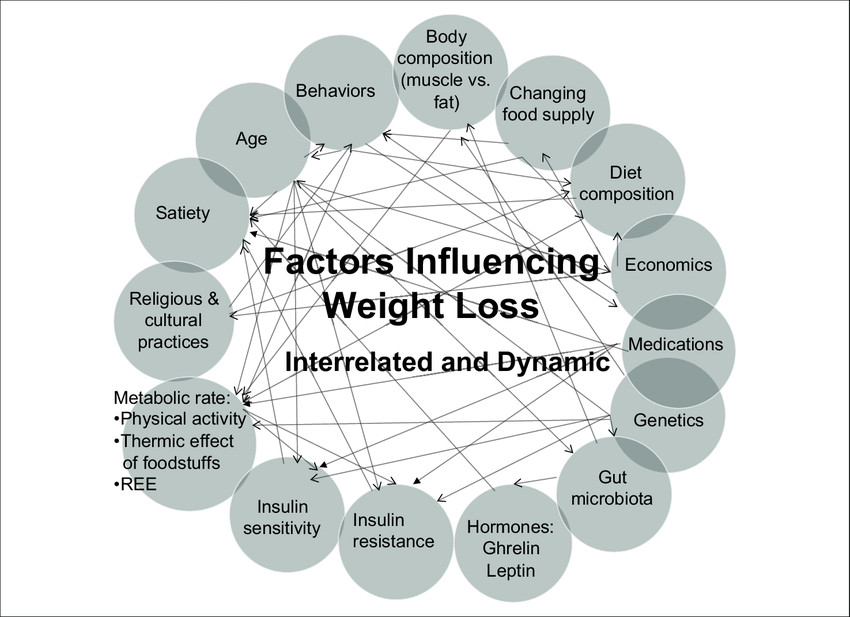The topic of weight loss is so loaded. Fat shaming is real and makes issues worse. Self-acceptance around weight is vital. But it is also clear that excess weight contributes to chronic health problems and early mortality even from COVID. What about dropping a few pounds makes sense and what doesn’t?
Fact #1: Even a small amount of weight loss (5%) can decrease risk of chronic disease. We don’t need to waste our time trying to get back to what we weighed decades ago.
Fact #2: Some people do lose weight and keep it off. What we know about the people who do keep weight off is that they focus on behaviors not the goal of weight loss, the lifestyle not the outcome. They sit less, move more. They also have a social support system that supports a healthy lifestyle including accountability buddies.
Fact #3: All calories are equal. A calorie is a measurement of energy, the amount of energy needed to raise the temperature of 1 kilogram of water by 1 degree Celsius. It doesn’t matter where that energy source comes from. It could be from a stick of wood!
But losing weight is not as simple cutting calories and going on a “diet”. Check out the image at the end for all the contributors to what we weigh.
Fallacy #1: All you need to do is cut back on calories. Calories may be equal, BUT the food sources of those calories affect your body VERY differently.
You knew processed food would be a top villain. All foods require some energy to “digest” because they need to be broken down in order to be absorbed. Foods that are processed don’t take as much energy to “digest”. A study comparing the energy it takes to “digest” food, ie the thermic effect of food, found that it takes 137 calories to digest a whole wheat bread unprocessed cheese sandwich (Barr S 2010). But it took only 73 calories to digest a white bread, processed cheese sandwich. That is a difference of 64 calories. Over time those extra calories add up.
There are other ways your food choices influence the balance of calories. Consumption of high fructose corn syrup like what is found in soft drinks, may increase appetite through the hormone ghereln. It is also associated with more fat deposited in the liver. FYI, fructose in fruit with its fiber doesn’t have the same effect. Processed carbohydrates lead to insulin resistance which makes fat storage easier. The carbohydrates in processed foods are rapidly absorbed resulting in big peaks and valleys in blood glucose leading to hunger.
On the positive side some foods, in particular protein containing foods fill us up so we take in fewer calories. Fiber has a similar effect. Consuming protein and fiber in the morning sets us up for being less hungry during the day. Protein as part of a healthy snack is also a good idea. No surprise, vegetables and fruit promote weight loss and weight stability (Dreher et al Nutrients 2020).
Fallacy #2: People who lose weight have more willpower. This idea just sets up unrealistic expectations and ultimately feeling bad when will power “fails”. Call it willpower, call it self-control, it doesn’t matter, we all have a very limited supply. Advertising, unrealistic images, “well meaning” friends or family, lack of sleep, evolution and more are chipping away at that limited supply of will power. Does it really make sense for our predecessors, who faced a lack of calories on a regularly, to eat a salad or the honey they just found? Better to set up your environment so you don’t need to use willpower.
Fallacy #3: All I need to do is exercise more. Of course, exercise burns some calories. But if weight loss is a goal, it will take more than exercising more. The biggest role for exercise is in maintaining weight or weight lost. Resistance training may not burn a lot of calories while you exercise but resistance training results in greater muscle mass and that burns more calories than adipose tissue even if you are just sitting. If you happen to be purposefully cutting calories, resistance training is even more important since it helps prevent the muscle loss that often comes with weight loss from cutting calories (Sardeli, 2018)
An underappreciated contributor to challenges with weight is lack of sleep! People with insufficient sleep are more likely to be overweight and to gain weight. We have all experienced how a lack of sleep makes decision making difficult. But that isn’t the only reason we tend to go for the easy, often more processed food choice. Turns out lack of sleep also increases release of the hormone ghrelin which makes us feel hungry and decreases release of the hormone leptin which helps us feel full.
So, what to do if weight loss is a goal? Don’t go on a weight loss diet! A small and underappreciated study demonstrated the effectiveness of just focusing on a plant-based diet. The Broad Study randomized people to a 12-week whole food plant based, low fat diet or continuation of their usual diet. No one was asked to decrease calories or count calories. The group who received the whole food plant-based diet lost 19 lbs at the end of the 12-week intervention. But they continued to lose weight having lost on average 26 lbs at 6mo and 25 lbs at 12 mos. All without counting a calorie.
The success of the Broad study supports the idea that weight loss can be a side effect of a healthy lifestyle not the goal. For a healthy lifestyle it is important to make health promoting food choices, move, get adequate sleep but also to cultivate mindfulness and human connection. But not in such a rigid way that we are depleting our “willpower”. Better off with strong convictions, loosely held. And isn’t it cool that we get to move and make human connections through Dragonheart?

